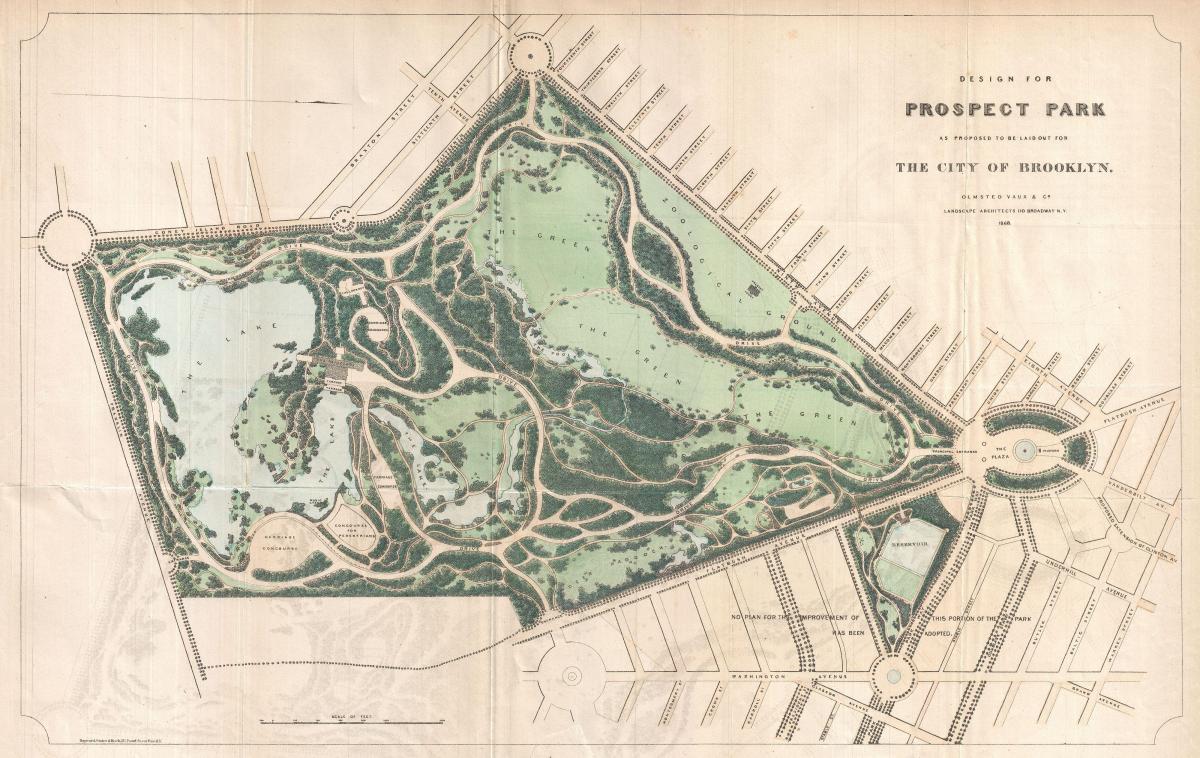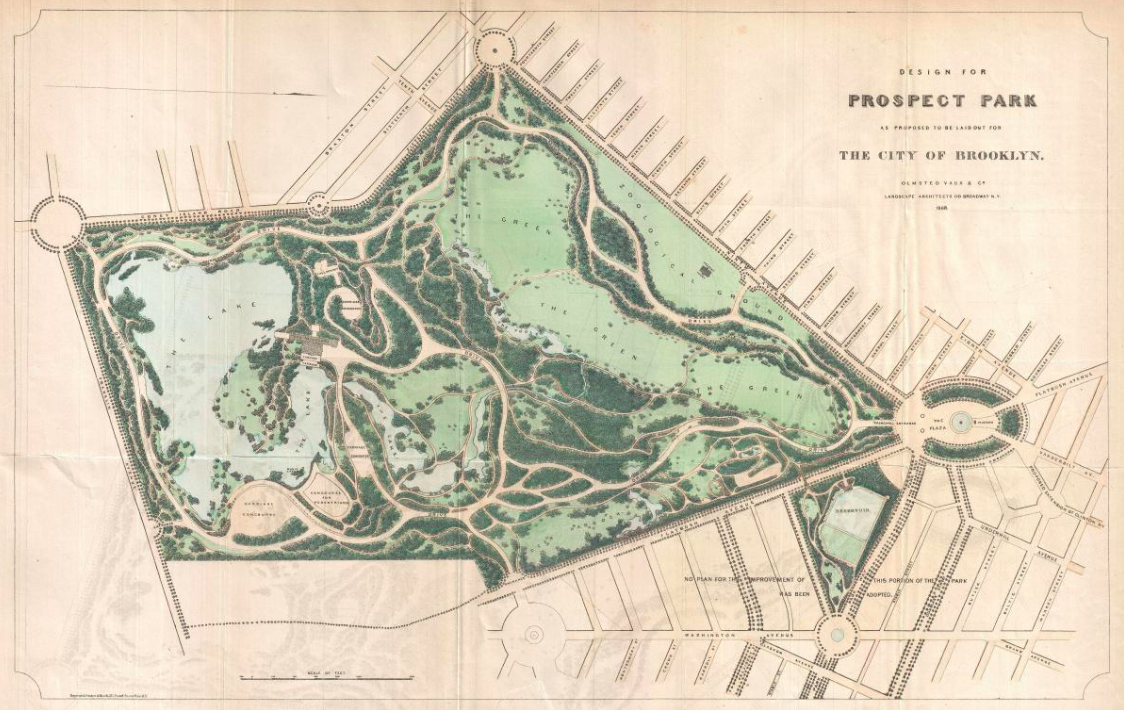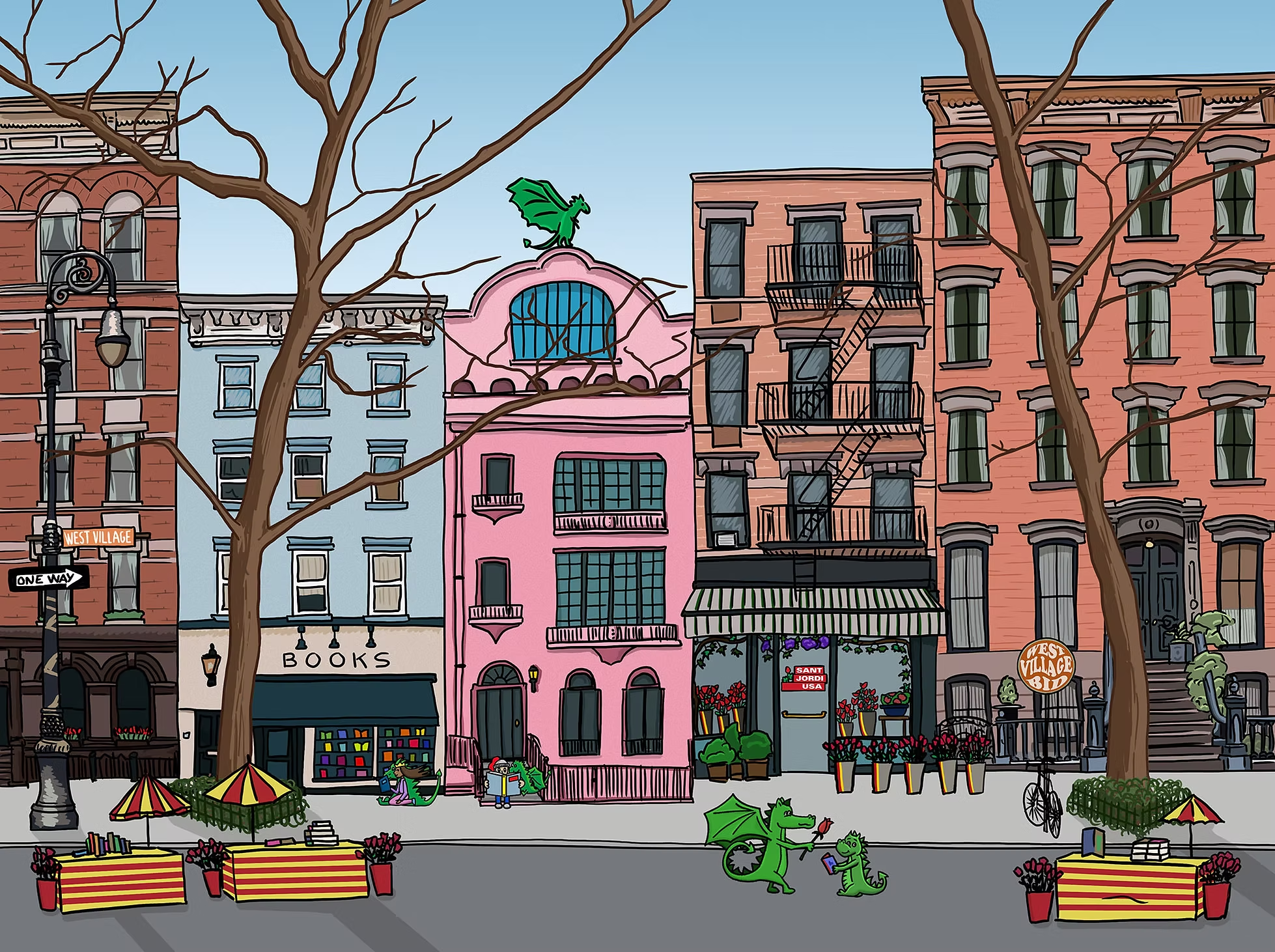By KIRK MICHAEL
This is the first part of a two-part Dispatch. The second part is available here.

“Beginnings are always delightful; the threshold is the place to pause.
My luggage trips over the pavement and the brownstone bella vista is dappled by trees I will soon learn are called Callery Pears, the ones that smell of semen, vulgar but pleasing, high on the listicle of “Disgusting Smelling New York Trees, Ranked,” a sign that I have finally arrived in Brooklyn in proper spring, the jizzy crush of it.
In the homes of dignified Park Slopers, there are co-op bags on every closet doorknob and a New York Review of Books on every console table. I wander through one while my friend C. prepares me an open-faced sandwich of cheese and soft-scrambled eggs. I love that he arranges these quiet hours. My trust in him is complete—he is the only person I can say this about with whom I do not share blood. C. and his husband S. don’t keep sugar in their home. Today S. plays my theme song, “I Can’t Get Started,” Mingus on piano.
C. is not a Hilton Als person so we talk about other New Yorkers—Elizabeth Hardwick then Joseph Mitchell, who invented some characters or conflated this character with that one. I don’t care in the slightest. To paraphrase ball philosopher Dion Waiters: “men lie, women lie, art doesn’t.” I’m not telling it the way it was, I’m telling it the way this story is.
I explain to C. there is a She at the center of my thoughts and I want to believe I will give her what She needs. Later, I hold my eyes open in the white glow of my phone to write her something too late and too incoherent about the nature of truth. I’m not sure if the letter makes sense but cannot stop myself from going on—this is my experience of She, all of a sudden in pretty deep. She has a quick mind and shining warm eyes and ten thousand unread emails in her inbox.
I am calmer when one of us is out of town, a physical distance to be bridged by words and airplanes and art. I p.s. her that I’ve just read an essay, one with the great title, “Tristes Tropiques.” How can She have a thought, a feeling, without me?
*
We awake and C. is telling me that he can smell women who are menstruating, which I use to segue to my deterioration. We float back over my past infatuations, names he half remembers, various dark impossibilities he’s walked me through with caution. We debate treatments for bacne. He tells me to change my shower schedule and the backpack I carry. Then tries to encourage me—they mostly see you from the front when the lights are on.
Cézanne translated landscapes to faces and the visage of Hortense Fiquet flits past now, under a tree, the rose in her cheeks, silk petals detaching from their stems, stern, as variously colored and blushed as orchards seen from trains, her eyes old, the way mine are in my mind, holding knowledge of the man painting her, her hands just sketched in time like Proust’s manuscript pages scribbled all over with corrections, going to his death with the intention of making it better.
C. takes me through the part in Prospect Park where we’re likeliest to see cardinals. Most of the cardinals are cardinals, though some are pieces of pink tape tied to condemned trees. The real things dart along the ground, males primary-colored and females in dun undone by their colored underfeathers, their down-slurred whistles at each other. The birds are stark and the branches of the brambles are bare enough that I’m in two places at once, here and back there, in Michigan, the bay window of my father’s house when cardinals were the only thing moving in a below-freezing January morning, hard crests against the strangling clear skies out window. All of the objects of eternity are at hand.
Turning off a loud corridor at MOMA I want to know why can’t things be like they were before, Vir Heroicus Sublimis? There was a time when I sat on a bench with my favorite painting stretched to the edge of my peripheral vision. Barnett Newman had all the red in the world at once. The room was red, it reflected back the redness of your life, your breath, the gills of a leaping trout. I sat until it filled my eyes to the edge of perception, widescreen Technicolor asking how much I had to give. Today it’s a giant, star-crossed in love, who tears open his chest cavity, peels back the ribs and bleeds out. Interpretations of the painting list like the fortuneteller miracle fishes that curled in my hand and said whether I was jealous or in love or a dead one.
A friend of S.’s has me put on headphones and listen to Lupe Fiasco’s “Mural” and I love it because he put everything he had on it, swinging until his arms tired, birds and cartoons, southern cities and art booms. I feel klaxons from her messages my thigh but they are phantoms. I’m outside having taken all I can into my mind, jaywalking in my Pegasuses, there is not enough time to wait for it, the blinking hand of the stop signal—I move forward, shaking with desire to practice stillness.
*
As an exercise I ask myself when it is that I’m happy. I wait for one of a narrow band of moments to surface, an instant of beauty before I try to hold it. In the park I nod in agreement with lines from Hardwick. With the weak something is always happening. I cry easier every day.
I take a piece of paper out of my bag, a second essay, the shadow of this essay, “My Feelings,” awaiting its title. I take pictures, individuals, then bursts. The essay is about She, time stopping and then moving too fast, early evening to late night—perhaps it’s a green handkerchief Hortense holds in her hands, or cuttings from the garden. What She says to me is “I love—I see us as such good friends.” I’ll show her James Salter’s parrot Kalil, dead on the floor of his cage in Barcelona, feet curled and clutching at nothing.
Central Park is so beautiful, a green banner struckthrough with sunned lake wavelets, casting a shifting starlight. Old money, sea green veins peeking from loafers, the last Auchincloss accents dying off alongside boys in matching shirts hurling tennis balls, learning the deep pleasures of catch, the best sport, an unknown and possibly infinite number of throws before they are able to stop. The ball might never be dropped.
Years ago I drove with C. into the old growth forest of the Olympic Peninsula, deep in Douglas firs and mist and Sitka spruces. He tells me now that I was taciturn on the trip, full of hour-long silences. I did not know where to begin to get to the end of the conversation I wanted to start. For the rest of this trip my mantra is do not be taciturn. C. and I are laughing, calling the city Mannahatta.
An anthem of my current despair goes “get me out of the city get me back to the trees” and it’s possible to walk through this park into Gustav Klimt’s, its elaborate, lit leaves embroidered with fireworks, the figures of women, the bespoke dresses and cloaks that once floated under the boughs now ghosted into the tree trunks. Couples entwined, globes of leaf and light hanging low over the earth.
To distribute the exigencies of walking beside me, I arrange to meet my friend R. from MFAland. He’s the kind of person who is 15 minutes late to Prospect Park because he met Ben Lerner on the street. Before he’s delayed we quibble over my unwillingness to leave the park to walk to see his naturopath in Williamsburg. I begin to tell him about the loves that have gone wrong but he wants to know when my novel will be finished, if ever. R. disdains my delays and my day job and tells me I’m not doing anything, that I have a vacant stare. I put on sunglasses so it’s easier to look past him. Seasons change, bewilder—he’s gone from only fucking fellow vegetarians to making stock with rabbit bones. What can I say? This is what I have decided to do with my life right now.
I trail open fingers over the grass, every dark blade of it—She solidifies before me. Is She my distraction from art (from life) or the other way around? So tristesse, so happy, an infinity of unrealized kisses folded into conversation. Melancholy is my finest mood, pining, green.
*
Halloween with She. We turned a room into an imitation of the Bates Motel, shower curtains and taxidermy birds. She wore Marion Crane’s complacent peignoir, I played Norman Bates playing his mother. Our narrative was drawn from her incomplete recollection of the film and my unwillingness to correct her. We lured people in a couple at a time, projecting the shower scene on the wall while She strolled about with a yawn in her voice, convincing herself She’d taken the money and run. From behind the shroud, I listened in a frenzy at each the repetition of her story, the slight alterations in her wording, her dark brows and long hair tucked as much as possible under a blonde wig.
We needed a signal for when I could come through the shower curtain to kill her. It was dark in the room so we had to go by touch. I felt the end of her fingers, one foot off the ground to get closer, the pads of index, middle, ring, fingerprint to fingerprint, sometimes an extra beat. The tremor of her hand, something bright then holes. I did not know how long it would stay there or how many times it would come back or whether, one time, we might stay behind the curtain, catching eyes in the dark, hers always turning forward, adamant, mine lingering on her profile, until the last moment and one more after that. When She let go I burst out, stabbing into the knife-shrieking soundtrack, our friends delirious for my dress, her death. The past is a life sentence. She is vertiginous, watched through the eyeholes in oil paintings.
Kirk Michael was born in Michigan. He went to Bennington College. He lives in California. He is the White Tank Top.




